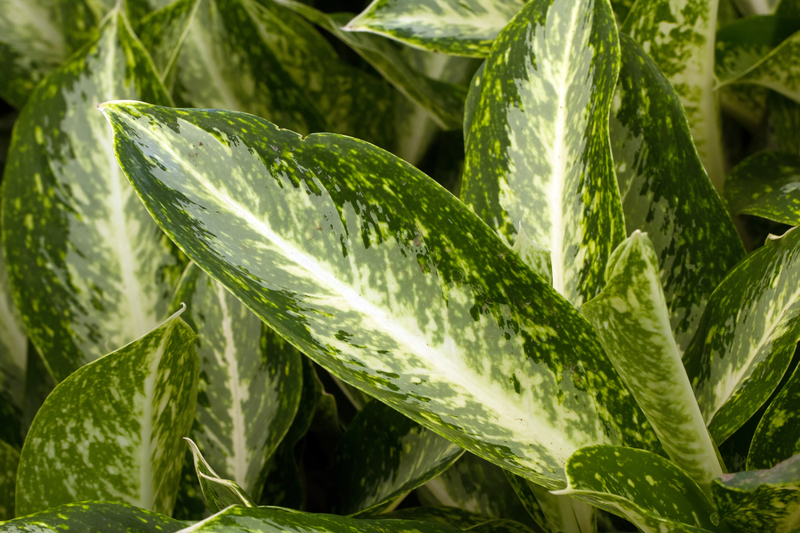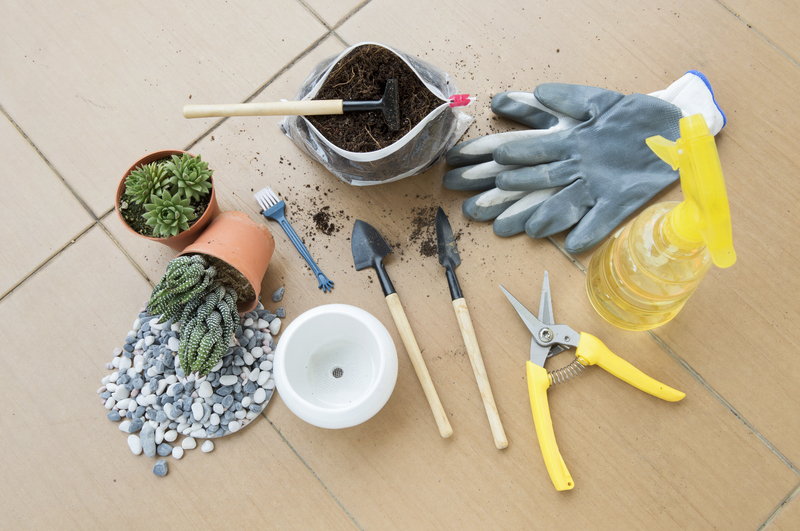Cultivate Your New Hobby: 9 Tips for Beginner Gardeners
Posted on 03/07/2025
Cultivate Your New Hobby: 9 Tips for Beginner Gardeners
Are you ready to transform your outdoor space and reconnect with nature? Gardening is one of the most rewarding hobbies you can start. Whether your goal is to grow colorful flowers or enjoy your own organic vegetables, beginner gardeners have plenty of reasons to dig in the dirt! In this comprehensive guide, you'll find 9 expert tips tailored for those just starting their gardening journey. Enjoy reading and get inspired to take the first step into the green world!
Why Start Gardening as a Beginner?
Gardening isn't just about plants--it's about well-being, creativity, and sustainability. Studies show that spending time in the garden reduces stress, improves mood, and even increases physical activity. For novice gardeners, the benefits extend beyond fresh produce or beautiful blooms: you'll learn patience, responsibility, and enjoy a newfound connection with the earth. Plus, beginners are often amazed at how easily a tiny seed can transform into a lush, living masterpiece.

9 Essential Tips for Beginner Gardeners
If you're new to cultivating your hobby garden, the following tips will set you up for success. Let's get started!
-
1. Select the Right Location
Sunlight and shade are the foundation of garden success. Start by observing your outdoor space. Most plants need at least 6 hours of direct sunlight daily. Track sunlight patterns in your yard or on your balcony for a few days.
If you're gardening indoors, choose a window with ample sunlight or invest in grow lamps. For outdoor gardens, ensure good air circulation and easy access to water.
- Tip: Raised beds or containers are great for patios and renters.
- Tip: Avoid low spots that collect water or shaded areas (unless growing shade-loving plants).
-
2. Know Your Hardiness Zone
Every region has a hardiness or planting zone based on weather and temperature. Look up your local USDA Plant Hardiness Zone before purchasing plants or seeds.
- This ensures your chosen varieties will thrive in your climate.
- Follow seed packet or nursery advice for the best planting window.
-
3. Start with Easy-to-Grow Plants
Many beginner gardeners start too ambitiously and end up frustrated. Pick easy, forgiving plants to boost your chances of success and build confidence:
- Vegetables: Radishes, lettuce, beans, tomatoes
- Flowers: Marigolds, zinnias, sunflowers, nasturtiums
- Herbs: Basil, mint, chives, parsley
-
4. Prepare Your Soil
Good soil is the secret to strong, healthy plants. Use a trowel to loosen the dirt and remove rocks or weeds. Mix in organic matter such as compost or well-rotted manure to add nutrients and boost drainage.
- Test your soil for pH and nutrient composition: inexpensive kits are available at garden centers.
- No garden bed? Container gardening is ideal for new gardeners--use high-quality potting mix for best results.
-
5. Invest in the Right Tools
A few basic gardening tools will save time, energy, and your back!
- Must-haves for garden beginners: Trowel, gloves, pruners, watering can or hose, hand rake.
- Keep them clean and store in a dry place to extend their lifespan.
-
6. Master Proper Watering
Watering is more than just a routine--knowing when and how much to water will make--or break--your garden.
- Check soil moisture before watering. If the top inch is dry, it's time for a drink.
- Water deeply but less frequently. This encourages plants to grow strong, deep root systems.
- Morning is the best time to water; avoid wetting leaves in the evening to reduce the risk of disease.
-
7. Learn About Mulching
Mulch is a beginner gardener's friend. It conserves soil moisture, keeps roots cool, and suppresses weeds.
- Use organic mulches like straw, wood chips, leaves, or grass clippings.
- Apply a 2-3 inch layer around your plants, but avoid piling against stems.
- Bonus: As mulch decomposes, it enriches your soil for the next season.
-
8. Patience and Observation
Gardening is a journey, not a sprint! As you wait for your seedlings to sprout, take time to observe. Notice how your plants respond to weather, watering, and fertilizer.
- Look out for pests or signs of disease.
- Keep a simple garden journal--record what you plant, dates, weather, and results.
-
9. Keep Learning and Join a Community
The learning never ends in gardening. Connect with other new gardeners for support, advice, and plant swaps.
- Join local gardening clubs or community gardens.
- Follow gardening blogs, YouTube channels, and Instagram pages for fresh ideas.
- Attend free workshops at your local nursery or cooperative extension office.
Common Challenges for New Gardeners (and How to Overcome Them)
- Pest Problems: Start with natural deterrents--like planting marigolds or using neem oil.
- Unpredictable Weather: Stay flexible, and use row covers or shade cloth as needed.
- Limited Space: Embrace container gardening or vertical gardens.
- Impatience: Remember, plants need time! Enjoy small victories and celebrate growth, even if progress feels slow.
- Information Overload: Stick to a few trusted sources for beginner gardener tips, and focus on your specific environment.
Creative Ideas to Make Gardening Fun!
- Start a kitchen herb garden--fresh basil, thyme, and parsley right at your fingertips.
- Paint or decorate your pots for a personalized touch.
- Invite pollinators like bees and butterflies by planting colorful, nectar-rich flowers.
- Grow an edible flower bed for beauty and flavor!
Trying new techniques keeps your gardening hobby fresh and exciting.
Must-Read Books for Beginner Gardeners
- "The First-Time Gardener: Growing Vegetables" by Jessica Sowards
- "All New Square Foot Gardening" by Mel Bartholomew
- "Gardening for Beginners: The Ultimate Guide" by Emily Stevens

Beginner Gardeners Frequently Asked Questions
Q: Do I need a backyard to start gardening?
A: No! Container gardening on balconies or windowsills is perfect for new gardeners with limited space.
Q: How often should I fertilize?
A: For most beginner-friendly plants, a balanced, slow-release fertilizer once per month is sufficient. Always read plant-specific guidelines.
Q: What is the easiest plant for absolute beginners?
A: Radishes germinate and mature quickly, offering speedy rewards for first-time gardeners.
Conclusion: Cultivating a Greener Future, One Plant at a Time
Embracing gardening as a hobby is a journey filled with discovery, beauty, and joy. By following these 9 essential tips for beginner gardeners, you will nurture not just plants, but also patience, confidence, and creativity. The world of gardening always has something new to teach, and every experiment brings you a step closer to mastering your green thumb.
Ready to cultivate your new hobby? Choose a sunny spot, grab your tools, and let your gardening adventure begin. Don't be afraid to make mistakes--just plant, observe, and grow!
Share this guide with friends and fellow aspiring gardeners, and together, let's make our communities greener--one garden at a time!
Latest Posts
From Waste Pile to Garden Delight: Soil Enrichment Unleashed
Mastering the Art of Weatherproofing Your Garden Space
Container Gardening: Cultivating Creativity

